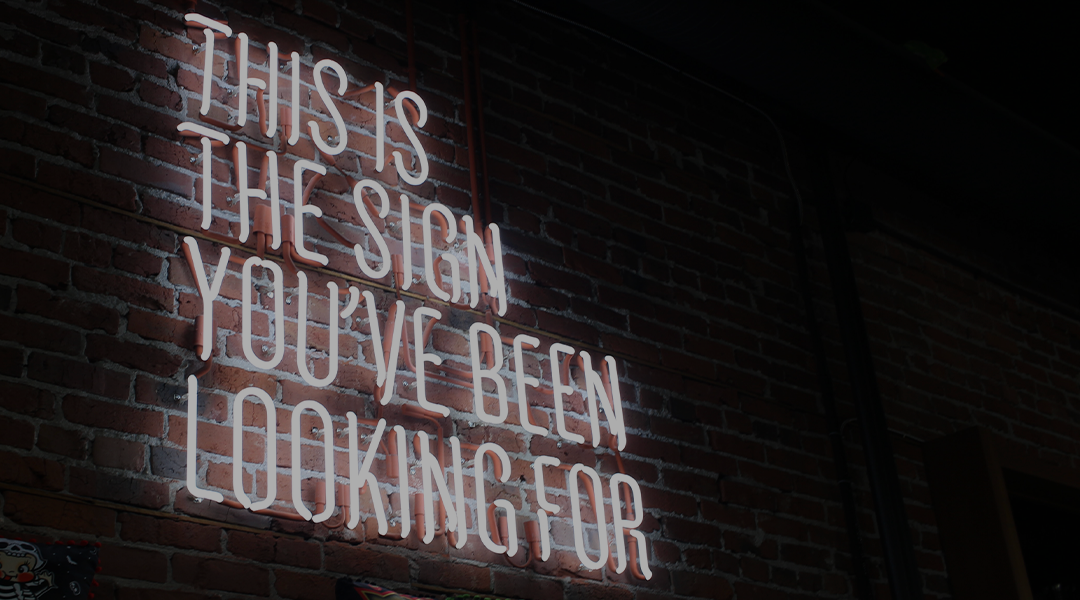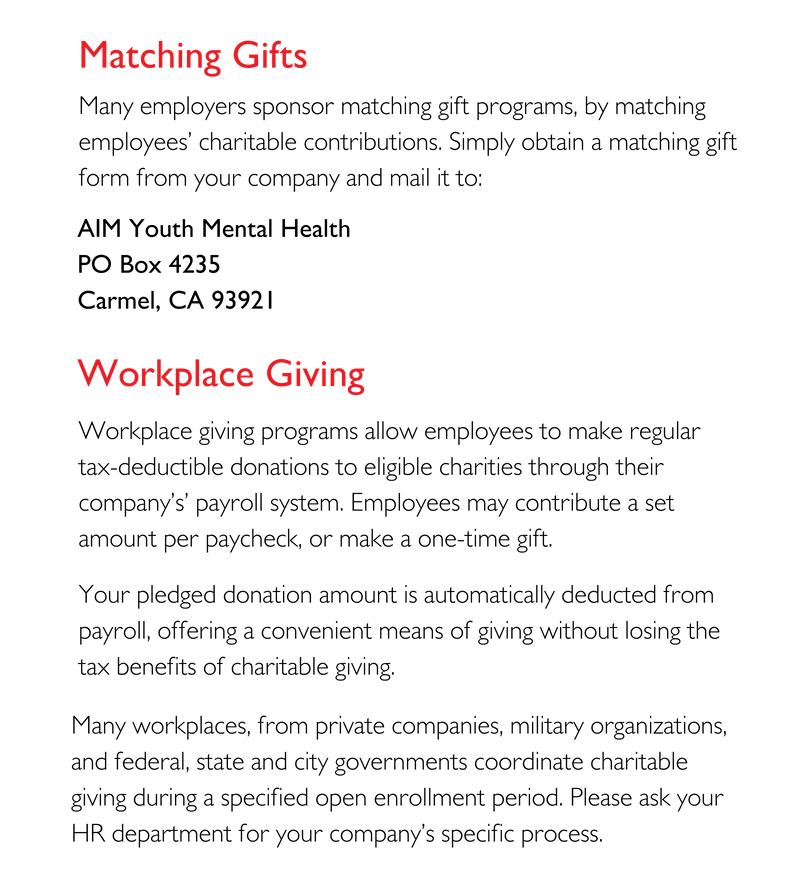

By Jill Suttie
The new year is here. And, if you are like many Americans, a new year marks the annual ritual of making New Year’s resolutions. Whether it’s losing weight, drinking less, sleeping more, making new friends, or setting a new work goal for yourself, the desire to improve our lives seems to take on new urgency with the change on the calendar.
While making resolutions can be fun and fill you with optimism for the future, keeping them can be more difficult. Many of us start out strong but end up losing steam with passing time. In fact, according to one survey, only 9% of people who make resolutions keep them.
There can be many reasons for failing at your resolutions. Perhaps you made a promise to yourself that was empty—meaning, not based on your true desires and values. Or, your resolutions were too ambitious or made without thought about how to make them stick. When you try and fail to make changes, you can damage your sense of self-efficacy or become hopeless or depressed, potentially harming your mental health.
How can you make and keep resolutions to improve your wellbeing? Here are some things to consider:
Make sure your resolutions fit your values and who you are as a person
You can decide at the new year to go to the gym every day and work off those extra holiday pounds. But, if fitness doesn’t really have much meaning for you, you’re going to set yourself up for failure before you even begin.
Instead, when you make resolutions, pay attention to what matters most to you and what you value. You may still decide more exercise is important; but, maybe it’s because you want to be a good role model for your child or to be sure you live a long life and get to see her grow up. Keeping a superordinate goal in mind—i.e. the importance of being a good parent—can help you make a behavioral goal—like getting more exercise—more relevant to you. Research shows that goals aligned with our higher-level values are easier to stick with.
Set goals that are approach-oriented rather than avoidance-oriented
It’s easier to keep a goal that is approach-oriented than avoidance-oriented—meaning, it’s easier to aim for something to add to your life than to tell yourself you can’t have something. That’s why adding an apple to your daily diet may be easier to do than resolving to forego all sweets for the month of January.
Why is that? It takes a lot of cognitive effort to resist temptation. And, if you’re like me, you probably have temptations galore lying around after the holidays. Avoiding tempting treats, like cookies and candy, is going to be a hard sell for anyone, and telling yourself “no” over and over will tax your cognitive resources. Once you experience low energy or stress, your willpower will be depleted and you’ll be more likely to give in to temptation.
If you can, try framing your resolution as a healthy habit you want to add to your life rather than as an unhealthy habit you want to break. You may find that once you’ve had that apple, you actually feel less tempted to eat the sweets anyway.
Make your goals small and manageable (You can always build from there)
Sometimes when making resolutions we like to think big. There’s nothing wrong with imagining your life as the way you most want it to be—if fact, research suggests it can help you in crafting a happier, healthier life. But, when it comes to goal-setting, a smaller, manageable goal is easier to keep than a grandiose plan.
Let’s say you want to improve your work relationships—an excellent goal for improving mental health, as we spend so much of our life at work and relationships are so central to our wellbeing. Research shows that diversifying our social networks and strengthening weak social ties—people who aren’t already best friends or family—can make us happier and healthier.
But, what if you’re very shy or have trouble reaching out? You can resolve to take just a small step in that direction, perhaps vowing to start a conversation with a colleague the next time you ride the elevator together or offering to bring your colleague a cup of coffee from the break room. People generally appreciate your reaching out to them (much more than you may think) and will likely respond in a positive way to kindnesses.
Create cues to help you get started and rewards to keep you going
It’s hard to get going on a resolution if it isn’t part of your daily routine already. That’s why it’s helpful to tie new behavior to a cue—something that occurs naturally in your day and can serve as a reminder of your goal.
An alarm clock is a good cue, if you use one to start of your day. It could serve as a reminder to infuse a little gratitude into your morning ritual—something science shows can be a huge lift to your mental wellbeing. When you hear that bell, spend 5 minutes journaling about the good things in your life—whether that’s having a happy marriage, a beautiful dawn, or just a roof over your head.
Other things can be cues, too. For example, if your resolution is to be more present with your family at the end of a work day, you could decide parking your car in your driveway after work is your cue to take a few calming breaths before entering your house.
Some of these practices will become their own reward, as you find that feeling grateful and calm makes you happier and gets better results from the people around you. But, if that’s not the case, you can also build in your own reward system. I used to tell my teen son that he could play 10 minutes of video games to reward himself for working on his school essay for 30 minutes. While stopping procrastination can feel good on its own, having a more tangible reward may be more incentivizing for a child.
Pair something you don’t want to do with something you do want to do
This may not always be possible. But, when you can pair something unpleasant with something pleasant, it can help you to keep to your goals.
Maybe you’ve resolved to get rid of the clutter in your house—clutter being a stressor for many people—but it feels overwhelming to deal with it. Start by making a small goal (i.e. cleaning out a drawer a week) and then pairing it with something you love to do (i.e. listening to rock and roll music while you sort through things). This kind of “bundling” has been shown to help us reach difficult goals.
The same holds true for things you have to do but don’t necessarily enjoy. For example, many of us have to commute to work but consider it one of the most unpleasant parts of our day. Using the time to watch a favorite TV show on your cell phone (if on a train) or listening to a book on tape (if driving) can definitely improve our wellbeing.
Set up your environment to be supportive
Most of us have been taught that we just need more willpower to change bad habits. But, that ignores the many environmental cues that can make or break our resolutions.
To keep a resolution, you need to make sure your surrounding environment is supportive of what you are trying to do. This is why people who suffer from alcoholism will rid their houses of alcohol and stop hanging out with drinking buddies. It’s much easier to avoid alcohol if you make sure your surroundings don’t work against you.
This tip is important for all resolutions, not just breaking addictions. Let’s say you want to go to bed earlier and improve your sleep quality (better sleep being tied to all sorts of mental and physical health benefits). If you keep your cell phone by your bed (tempting you to check social media late at night), or if your bedroom is too bright or warm, you are basically shooting yourself in the foot.
People who make resolutions to start an early morning workout routine will realize the benefit of preparing the night before—i.e. putting workout clothes next to your bed. Not only will seeing them act as a cue to exercise, the ease of having them ready to put on will make your goal that much easier to achieve.
Get support from others
There’s a reason you often see public challenges being made at new year—like, gratitude challenges or alcohol-free Januarys. Sharing your commitment to a new goal with others and knowing they are struggling with you to make changes themselves can be a big boost to your efforts and make you feel less alone.
Of course, you don’t have to broadcast your personal goals to a wide public. Instead, you can invite a friend or group of friends to join you in your challenge—or to just be available to check in with you occasionally and provide encouragement. Sometimes, getting support from others can make it easier to keep your goals long-term—as long as you are want their help, and they are not trying to force you or coerce you into changing.
Expect setbacks and don’t let them daunt you
One of the biggest mistakes people make when setting up resolutions is expecting everything to go swimmingly. It won’t. You will most likely wake up some mornings and feel too ill to exercise or go to a party where there is lots of food and wine and be unable to resist. That’s to be expected, as you cannot control everything in life.
However, anticipating potential setbacks can help. For example, think through what you can do if the power goes out at the gym, thwarting your exercise plan. Or consider where you might socialize at a booze-filled party when you’re trying to cut down (away from the bar). Thinking through courses of action when faced with challenges can help you from veering too far off track.
Of course, missing a day at the gym or taking a glass of wine doesn’t mean you’ve failed miserably. Instead of berating yourself or feeling hopeless, try to be gentle with yourself and recognize that everyone has setbacks when they try to change their behavior. Being more self-compassionate can help stop you from giving up entirely on your goals.
And, remember: You can learn from your mistakes and always begin again. If you keep in mind what you really value and what makes behavioral change easier—creating small step goals, using cues, removing potential barriers, bundling fun with less fun activities, and creating supportive environments—you can set resolutions that lead to a happier, healthier you.
______________________
About the Author
Jill Suttie, Psy.D., is a free-lance journalist and a staff writer and contributing editor for Greater Good, an award-winning online magazine published by the University of California’s Greater Good Science Center. A psychologist by training, her articles cover scientific research aimed at uncovering the keys to individual wellbeing and a more compassionate society. She also records music and has two CD’s of original songs that can be heard and purchased on her personal website: jillsuttie.com.


















 Moving Upstream: A Proactive Approach to Addressing Behaviors and Bullying
Moving Upstream: A Proactive Approach to Addressing Behaviors and Bullying Krista Reuther is the Assistant Director of Ohana’s Community Health and Prevention Program. She received her Masters in Public Health and Social Work at UC Berkeley. She comes to this position after 14 years of clinical social work experience at Stanford Children’s Hospital in pediatric oncology, critical care, and bereavement. Her goal is to reduce the incidence of mental illness in children and adolescents in Monterey County.
Krista Reuther is the Assistant Director of Ohana’s Community Health and Prevention Program. She received her Masters in Public Health and Social Work at UC Berkeley. She comes to this position after 14 years of clinical social work experience at Stanford Children’s Hospital in pediatric oncology, critical care, and bereavement. Her goal is to reduce the incidence of mental illness in children and adolescents in Monterey County. Dr. Guss is a 35-year veteran educator with a doctorate degree in Educational Leadership. She served as a classroom teacher for 10 years, including two years as a teacher in a bilingual program in South Central Los Angeles. She has also served as a college professor, mentor teacher for new teachers, and a master teacher for teacher candidates completing their student teaching experience. She continues to be a strong advocate for the teaching profession.
Dr. Guss is a 35-year veteran educator with a doctorate degree in Educational Leadership. She served as a classroom teacher for 10 years, including two years as a teacher in a bilingual program in South Central Los Angeles. She has also served as a college professor, mentor teacher for new teachers, and a master teacher for teacher candidates completing their student teaching experience. She continues to be a strong advocate for the teaching profession. Fellowship: Stanford University School of Medicine (1994) CA
Fellowship: Stanford University School of Medicine (1994) CA Michael G. Thompson, Ph.D. is a consultant, author and psychologist specializing in children and families. He is the supervising psychologist for the Belmont Hill School and has worked in more than seven hundred schools across the United States, as well as in international schools in Central America, Europe, Africa and Asia.
Michael G. Thompson, Ph.D. is a consultant, author and psychologist specializing in children and families. He is the supervising psychologist for the Belmont Hill School and has worked in more than seven hundred schools across the United States, as well as in international schools in Central America, Europe, Africa and Asia.
 is 15 years old and a sophomore at Marina High School in Marina, CA. Her academic interests include math, history, and psychology. She joined the AIM Ideas Lab in 2021 because she wanted to be a part of something that could have a great impact on her community. Marwa is interested in youth mental health because she has always been fascinated with the human mind and she wants to support those that are suffering who may feel like their challenges in life aren’t important enough or are too afraid to seek necessary help.
is 15 years old and a sophomore at Marina High School in Marina, CA. Her academic interests include math, history, and psychology. She joined the AIM Ideas Lab in 2021 because she wanted to be a part of something that could have a great impact on her community. Marwa is interested in youth mental health because she has always been fascinated with the human mind and she wants to support those that are suffering who may feel like their challenges in life aren’t important enough or are too afraid to seek necessary help. Giovanna Panetta is a 16 year old junior at Carmel High School. She has always been called to STEM subjects, specifically biology. The AIM Ideas Lab instantly attracted her attention as a research opportunity. Gia has always comprehended the importance of mental health. She knows that COVID only exacerbated previously existing problems, and that as a community we can try and find the root of those problems. Mental health is an integral part of life, and can impede a body’s ability to be healthy. She strongly believes that life is worth living, and she wants to help anyone that thinks otherwise.
Giovanna Panetta is a 16 year old junior at Carmel High School. She has always been called to STEM subjects, specifically biology. The AIM Ideas Lab instantly attracted her attention as a research opportunity. Gia has always comprehended the importance of mental health. She knows that COVID only exacerbated previously existing problems, and that as a community we can try and find the root of those problems. Mental health is an integral part of life, and can impede a body’s ability to be healthy. She strongly believes that life is worth living, and she wants to help anyone that thinks otherwise. Dr. Friedman completed her undergraduate degree in Psychology from University of California San Diego (UCSD). She went on to complete her masters and doctorate degrees (Ph.D.) in Clinical Psychology from Rosalind Franklin University of Medicine and Science/Chicago Medical School. Dr. Friedman completed her pre-doctoral internship at Rush University Medical Center, Chicago, IL, and her post-doctoral fellowship training at the VA San Diego Healthcare System. Her clinical training and experience has been focused primarily on comprehensive assessment and effective treatments for anxiety, mood and related disorders. Dr. Friedman has extensive experience in providing Cognitive Behavioral Therapies for anxiety disorders (e.g. worry, OCD, social anxiety, phobias and PTSD), depression, adjustment disorders/life stress, insomnia and body-focused repetitive behaviors (e.g. Trichotillomania and skin picking). She has received training in evidence-based interventions for a variety of specific problems, including exposure with response prevention (ERP) for treatment of OCD, Prolonged Exposure (PE) for treatment of PTSD, and Cognitive Behavioral Therapy for Insomnia (CBT-I). Moreover, she has specialty training in the treatment of childhood anxiety and related disorders, such as ADHD, selective mutism, separation anxiety, PTSD, depression and specific phobias. In addition, Dr. Friedman has developed an expertise in research on Trichotillomania and body-focused repetitive behaviors, which has led to numerous local and national presentations. Dr. Friedman regularly attends local and national conferences, training seminars and workshops in order to stay informed on the most up to date treatments and apply state of the art science into her clinical practice.
Dr. Friedman completed her undergraduate degree in Psychology from University of California San Diego (UCSD). She went on to complete her masters and doctorate degrees (Ph.D.) in Clinical Psychology from Rosalind Franklin University of Medicine and Science/Chicago Medical School. Dr. Friedman completed her pre-doctoral internship at Rush University Medical Center, Chicago, IL, and her post-doctoral fellowship training at the VA San Diego Healthcare System. Her clinical training and experience has been focused primarily on comprehensive assessment and effective treatments for anxiety, mood and related disorders. Dr. Friedman has extensive experience in providing Cognitive Behavioral Therapies for anxiety disorders (e.g. worry, OCD, social anxiety, phobias and PTSD), depression, adjustment disorders/life stress, insomnia and body-focused repetitive behaviors (e.g. Trichotillomania and skin picking). She has received training in evidence-based interventions for a variety of specific problems, including exposure with response prevention (ERP) for treatment of OCD, Prolonged Exposure (PE) for treatment of PTSD, and Cognitive Behavioral Therapy for Insomnia (CBT-I). Moreover, she has specialty training in the treatment of childhood anxiety and related disorders, such as ADHD, selective mutism, separation anxiety, PTSD, depression and specific phobias. In addition, Dr. Friedman has developed an expertise in research on Trichotillomania and body-focused repetitive behaviors, which has led to numerous local and national presentations. Dr. Friedman regularly attends local and national conferences, training seminars and workshops in order to stay informed on the most up to date treatments and apply state of the art science into her clinical practice. Dr. Piacentini is a board-certified clinical child and adolescent psychologist and Professor in the UCLA Department of Psychiatry and Biobehavioral Sciences. He directs the UCLA Child OCD, Anxiety, and Tic Disorders Clinic and Tourette Association Center of Excellence which provide diagnostic evaluation and treatment (both therapy and medication) for youth with the above problems. He also directs the UCLA Center for Child Anxiety Resilence, Education, and Support (CARES; carescenter.ucla.edu) which provides education and programming to parents, teachers, and clinicians about anxiety prevention and management.
Dr. Piacentini is a board-certified clinical child and adolescent psychologist and Professor in the UCLA Department of Psychiatry and Biobehavioral Sciences. He directs the UCLA Child OCD, Anxiety, and Tic Disorders Clinic and Tourette Association Center of Excellence which provide diagnostic evaluation and treatment (both therapy and medication) for youth with the above problems. He also directs the UCLA Center for Child Anxiety Resilence, Education, and Support (CARES; carescenter.ucla.edu) which provides education and programming to parents, teachers, and clinicians about anxiety prevention and management. Citlalli Nava is 18 years old and a first year majoring in Psychology at Hartnell Community College in Salinas, CA. She is passionate about understanding how mental health affects how youth think, act, and feel. Citlalli joined the AIM Ideas Lab in 2021 after witnessing the increase in mental health challenges in teenagers and considering the mental health issues they are facing. Citlalli is interested in youth mental health because it is a real problem faced by her generation.
Citlalli Nava is 18 years old and a first year majoring in Psychology at Hartnell Community College in Salinas, CA. She is passionate about understanding how mental health affects how youth think, act, and feel. Citlalli joined the AIM Ideas Lab in 2021 after witnessing the increase in mental health challenges in teenagers and considering the mental health issues they are facing. Citlalli is interested in youth mental health because it is a real problem faced by her generation. Clinical and community psychologist and health care innovator Arthur C. Evans Jr., PhD, is CEO of the American Psychological Association, the leading scientific and professional organization representing psychology in the United States. With more than 146,000 researchers, educators, clinicians, consultants, and students as members, APA promotes and disseminates psychological knowledge to benefit society and improve lives – a mission consistent with Evans’ life work.
Clinical and community psychologist and health care innovator Arthur C. Evans Jr., PhD, is CEO of the American Psychological Association, the leading scientific and professional organization representing psychology in the United States. With more than 146,000 researchers, educators, clinicians, consultants, and students as members, APA promotes and disseminates psychological knowledge to benefit society and improve lives – a mission consistent with Evans’ life work.


